Contents:
- The Islamic Republic’s bittersweet anniversary
- Israel must follow international law and vaccinate Palestinians too
- Moscow strengthens its regional role as Russian-Turkish joint monitoring center opens in Azerbaijan
- Resurgent Tripoli clashes give a taste of what may be next for Lebanon
- More Saudi Aramco shares for sale?
The Islamic Republic’s bittersweet anniversary
Alex Vatanka
Director of Iran Program and Senior Fellow, Frontier Europe Initiative
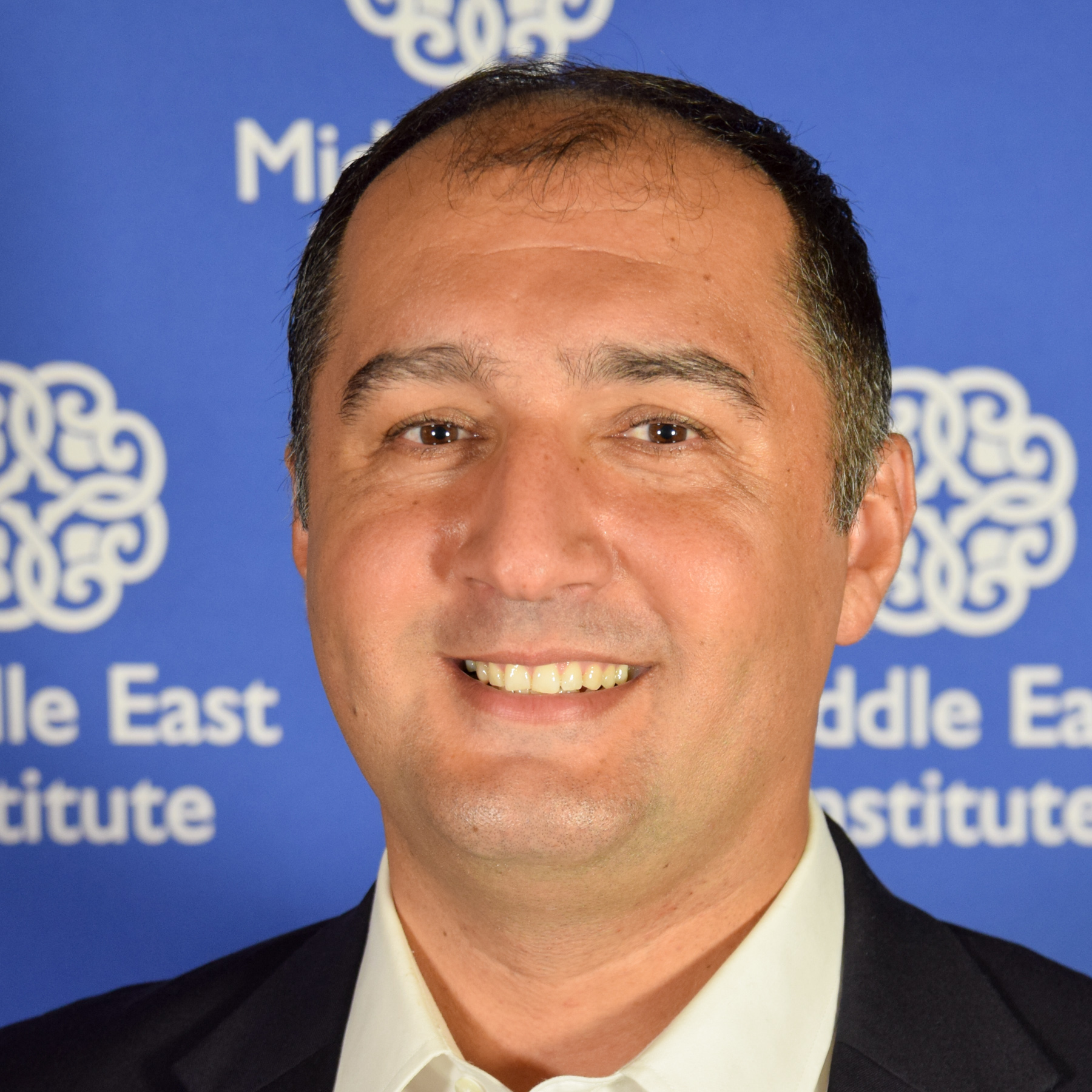
In the next two weeks officials in Tehran will celebrate the victory of the Islamic Republic in 1979. Make no mistake though, the 42nd anniversary of the revolution that gave birth to a militant Islamist political model will be a bittersweet one. The party line is straightforward: Iran has prevailed in the face of much international hostility and can be proud to call itself the only truly independent country in the world. But it’s an empty slogan and a poor excuse for having turned the proud, ancient nation of Iran into a pariah state. The notion of “independence” in an interconnected world is a mirage, as Iranians know better than anyone.
The last few years of sanctions under the Trump administration’s “maximum pressure” campaign have made it clear to Iranians that the country must have access to international markets to meet its basic economic and diplomatic needs. No reliable figures exist, but the last year alone has seen sanctions and the pandemic lead to the loss of over a million jobs in a society that was already wrestling with a multitude of socio-economic ailments. Donald Trump did not manage to cut Iran off entirely from global markets, but he did manage to make Iran’s commerce that much more convoluted and costly. Circumventing sanctions has become a vocation in Iran: Trade has been conducted in the shadows to avoid prying eyes, giving rise to shady middlemen that need to be paid, feeding webs of corruption. Supreme Leader Ayatollah Ali Khamenei tags the system he oversees as divinely blessed. Transparency International sees things rather differently, however, ranking Iran 149th out of the 180 countries assessed in its Corruption Perceptions Index.
Foreign Minister Javad Zarif has boasted about Iran’s ability to circumvent sanctions. When asked if there was not a better way to conduct commerce, Zarif famously said, “This is how we have chosen to live.” It was such a mischaracterization that Zarif soon after had to take it back. Louder calls for change are now coming from new corners, including those that were once solid constituents of the Islamic Republic. Take Ali Motahari, a prominent figure in the regime whose father was the right-hand man to Ayatollah Ruhollah Khomeini, the founder of the Islamic Republic. This week Motahari suggested that when the political system cannot correct itself, then the people should be asked in referendums what they prefer on issues such as whether Iran should reestablish diplomatic ties with the United States.
The point is not that referendums are the way of the future for the Islamic Republic. It is rather that there is a deepening recognition by some in the regime itself that fundamental policy introspection is needed. They look to the arrival of Joe Biden as an opportune moment to push this case. The trouble is that many others in the regime, including Khamenei, are too fearful of any large-scale shifts in domestic or foreign policies. For them, the challenge has been and remains to keep the lid on boiling popular anger.
Follow on Twitter: @AlexVatanka
Israel must follow international law and vaccinate Palestinians too
Carol Daniel Kasbari
Non-resident Scholar
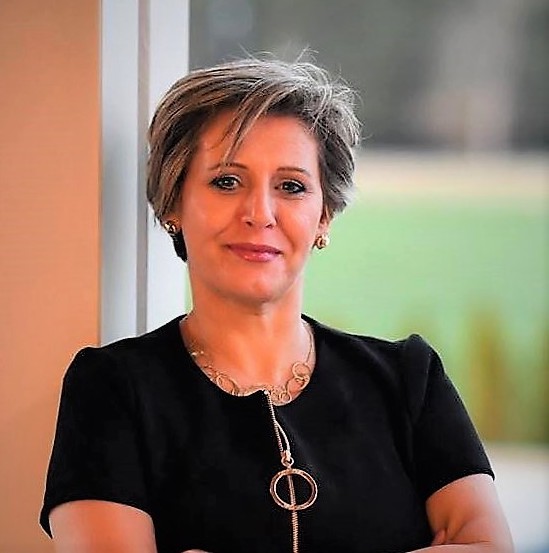
Israel has rolled out a rapid COVID vaccination program that has already provided the first dose to 54% of its 9 million citizens, including Israeli settlers in the West Bank. However, many critics have voiced concern that it has excluded the more than 4.5 million Palestinians living under Israel’s direct or indirect military and administrative control. The Israeli health minister said Palestinians will have to take care of themselves, and other Israeli commentators have argued that, according to the Olso Accords, the Palestinian Authority (PA) is responsible for public health under the principle of self-determination. While on Jan. 31 Israel agreed to provide 5,000 doses of the vaccine for Palestinian front-line medical workers, this falls far short of the overall need.
Israel’s refusal to take responsibility has prompted widespread pushback. The liberal American pro-Israel Jewish lobby group, JStreet, said Israel is morally and legally obligated to "ensure that all residents of the territory it rules over receive necessary medical services.” A tweet, since deleted, by Rep. Jamaal Bowman (D-NY) said, "Netanyahu must ensure that both Israelis and Palestinians have access to the Covid vaccine. This cruelty is another reminder of why the occupation must end." According to Human Rights Watch, “Nothing can justify today’s reality in parts of the West Bank, where people on one side of the street are receiving vaccines, while those on the other do not, based on whether they’re Jewish or Palestinian.”
While according to the Oslo Accords, Palestinians should have had an independent state by 1998, Israel remains the occupying power controlling all aspects of life, from border crossings to medical care. As a result, Israel bears responsibility for and has a legal and moral duty toward Palestinians in all aspects of life.
Under Article 56 of the Fourth Geneva Convention, Israel, as an occupying power, has obligations toward Palestinians and a duty to ensure access to health institutions, services, and hospitals; to maintain public health; and to adopt preventive measures to combat the spread of infectious diseases.
Numerous human rights organizations, including Israeli and Palestinian ones as well as Amnesty, have called on Israel to provide the vaccine to Palestinians. Not doing so constitutes racial discrimination and a denial of Palestinians’ right to health care under international law. According to the U.N. Office for the Coordination of Humanitarian Affairs, the Oslo Accords must be “interpreted and applied consistently with international law, and cannot derogate from its broad protections.”
For now, the PA is looking for funding to acquire the vaccine, while knowing that it lacks the resources given its fragile health system. Health officials have made contradictory statements about when they will be able to obtain it, meaning millions of Palestinians in the West Bank and Gaza Strip are unlikely to be vaccinated anytime soon.
Instead of waiting for assistance, the PA must exert pressure on the international community and U.N. to push Israel to fulfill its obligation to provide the vaccine and distribute it without discrimination. Israel must also lift the Gaza blockade to enable its health system to confront the alarming rise in COVID-19 cases in recent weeks.
Follow on Twitter: @CarolDkas
Moscow strengthens its regional role as Russian-Turkish joint monitoring center opens in Azerbaijan
Rauf Mammadov
Scholar
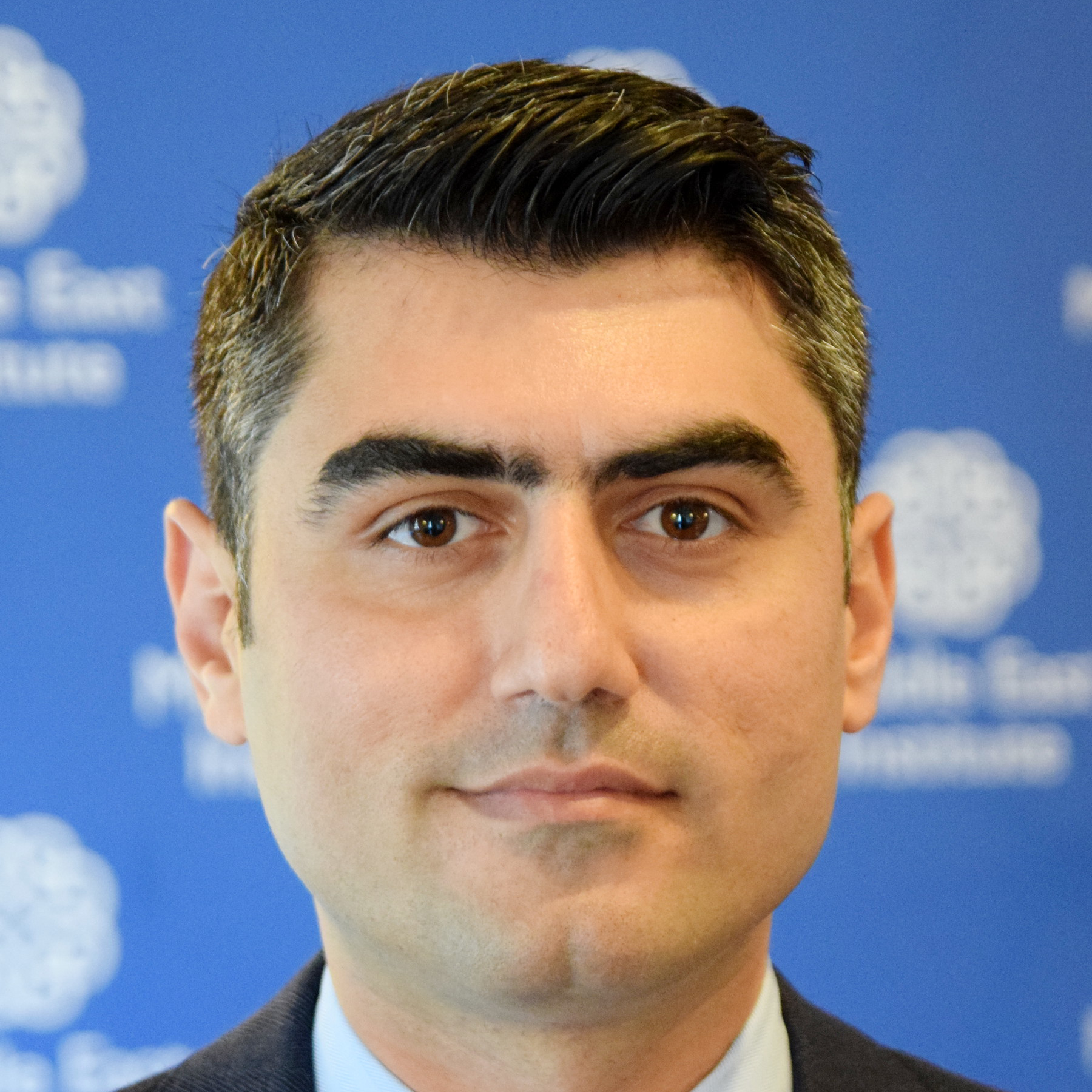
On Jan. 30, Turkey and Russia inaugurated their joint monitoring center in Agdam, Azerbaijan. The 10-acre monitoring center is a critical element of the cease-fire agreement between Azerbaijan and Armenia signed on Nov. 8 following a 44-day war over the region of Nagorno-Karabakh. Unlike Russia and Turkey’s joint patrols in Syria, the monitoring center in Nagorno-Karabakh will mainly focus on collecting data, registering potential cease-fire violations, and investigating other violations and complaints. The center's location — on the road connecting Azerbaijan to Stepanakert/Khankendi — was deliberately chosen to ensure the best logistical access to Nagorno-Karabakh.
The joint monitoring center is a win-win for both Ankara and Moscow. Turkey was adamant about establishing a military presence in the region following its open support for Azerbaijan throughout the war. While acknowledging Turkey's indispensable role in the conflict and its fraternal relations with Azerbaijan, Moscow opposed allowing Turkey to participate in its peacekeeping efforts in Nagorno-Karabakh. Thus, by situating the center in Azerbaijan proper, Moscow preserved its status as the sole guarantor of the peace in Nagorno-Karabakh while giving Turkey a military foothold in the region. More broadly, the joint center is also a manifestation of Moscow and Ankara's non-zero-sum approach toward geographies where their interest may diverge.
Meanwhile, Moscow has also preserved its leading role in all formats and initiatives associated with the region. During the war, the Kremlin waited patiently as the other two OSCE co-chair countries, the United States and France, adopted a timid approach that failed to secure a cease-fire. It then stepped in on Nov. 9 by mediating a final agreement and sidelining the OSCE Minsk Group format.
Aside from separate incidents in the first days of the cease-fire, the warring parties have avoided breaching the Moscow agreement. The rhetoric of leaders on both sides has also softened compared to the war days. Meanwhile, Azerbaijani and Armenian government officials have held several meetings and set up an intergovernmental committee to sort out outstanding issues. These meetings aim to establish a dialogue between Baku and Yerevan and reopen transportation lines between the two countries that have been crippled by two wars.
These efforts are, of course, positive steps toward potential reconciliation. There are still many moving parts in the cease-fire agreement that need to be addressed, however. For instance, the parties still hold opposing positions on the status of Nagorno-Karabakh. Baku believes that that topic is off the table and considers the entire region to be its territory, while the Armenian side insists on Nagorno-Karabakh's special status.
The current state of affairs, namely, the inability of Baku and Yerevan to negotiate directly and the conflicting items on the two countries’ agendas, gives Russia an opportunity to preserve its role as the sole judge of the conflict and thereby strengthens its position in the region.
Follow on Twitter: @RaufNMammadov
Resurgent Tripoli clashes give a taste of what may be next for Lebanon
Christophe Abi-Nassif
Director, Lebanon program
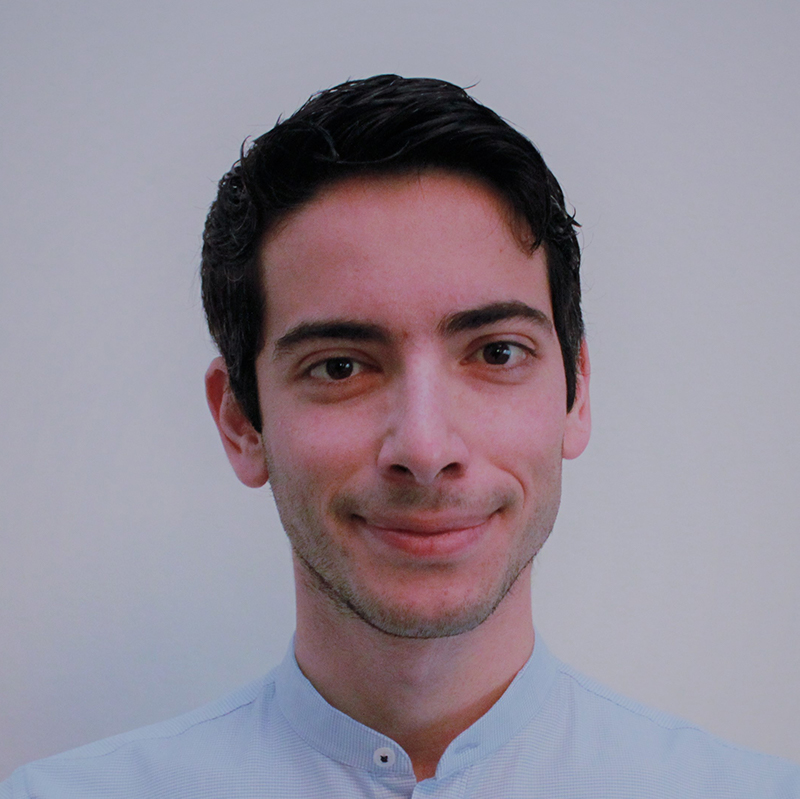
Lebanon’s second largest and poorest city witnessed extended clashes between protesters and security forces throughout last week. The renewed outburst of anger against the government is primarily linked to the absence of serious poverty relief programs at a time when strict lockdown measures have crippled economic activity. Even before the Lebanese crisis began in late 2019, more than half of the city’s residents lived below the poverty line. Today, the situation continues to worsen amid a gradual national realization that the political stalemate and socio-economic freefall have no end in sight.
Tripoli’s restless week presents some important political and security implications for the city itself and for the rest of the country.
Politically, such episodes further fuel the disintegration of state legitimacy and of its ability to protect its most vulnerable citizens. This effectively paves the way for more clientelism and political subordination. It also increases the appetite and likelihood of foreign and non-state actors profiting from poverty to gain influence in local communities. It is not a secret that regional players such as Turkey, for example, have developed strategic interests in Tripoli, a bastion of Sunni Islam, in recent years.
On the security front, the events of last week illustrate the eventual escalation of violence between impoverished citizens and equally impoverished security forces, who have seen their salaries lose five-sixths of their value over the past 15 months. If similar confrontations in terms of both scale and speed were to spread throughout the rest of the country, they could stretch security forces’ ability to preserve order and national security. Such confrontations will only intensify in the weeks and months ahead when the government faces the eventual need to lift or ration subsidies on basic necessities such as fuel.
Along these lines, the events in Tripoli last week also coincided with the release of new research from Amnesty International (AI). The human rights organization highlighted the unlawful use of French law enforcement equipment to quash demonstrations since the Lebanese protest movement started in October 2019. As government retaliation intensifies in what AI labels as “a climate of impunity,” the conditionality of equipment procurement arrangements between French authorities and Lebanese security forces should be revisited. This particularly holds at a time when French President Emmanuel Macron, who promised urgent aid to the Lebanese people, is expected to visit the country for a third time since the Beirut port explosion in August.
More Saudi Aramco shares for sale?
Jean-François Seznec
Non-Resident Scholar
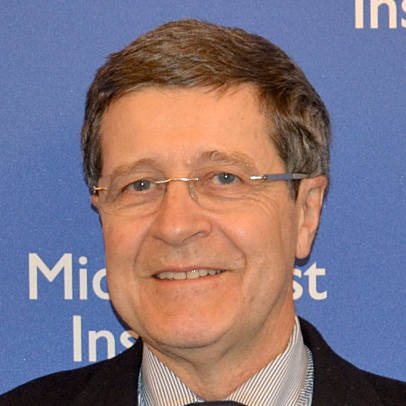
Saudi Crown Prince Mohammed bin Salman presented his latest vision for the kingdom at the Future Investment Initiative (FII) conference in Riyadh on Jan. 25-26. The FII meeting showcased Saudi Arabia as the center of a “neo-Renaissance” — the theme of the meeting — in which the kingdom will become a world leader in artificial intelligence, renewable energies, and the circular carbon economy. Moreover, the “neo-Renaissance” seeks to make the kingdom a major tourist destination, double the size of the capital city Riyadh by 2030, and develop 100% green cities like NEOM and Amwala.
The crown prince said that the trillion dollars needed to achieve the vision will come from investors and the Public Investment Fund (PIF), Saudi Arabia’s sovereign wealth fund, which he chairs. He said that the PIF’s financing will come from the development of the lands it owns for NEOM, profits from the Riyadh expansion, and the sale of shares in Saudi Aramco, the Saudi national oil company. The number of Aramco shares to be sold was not specified, but given the company’s capitalization today, it is possible that the kingdom could float 40% of Aramco’s capital for $750 billion without losing control of the company.
Despite the optimism, there is no guarantee that the vision of the crown prince will go beyond the sleek public relations event at the FII conference. The presence of many of the world’s major financiers and industry leaders at the conference demonstrates that there is some interest in the prince’s vision. However, the first Aramco initial public offering (IPO) was limited to 1.9% of the shares to raise $29.4 billion and was kept solely on the Riyadh stock exchange, the Tadawul. Much larger amounts may be difficult to raise on the Tadawul and would likely require major investments from large international financial institutions.
Saudi Aramco is widely seen as the best managed of the national oil companies, an attractive feature for would-be investors in a new, larger IPO. Many potential investors will also trust Saudi Aramco’s efforts to develop the best technology to substantially reduce its carbon emissions. They will appreciate that Saudi Aramco has become fully financially transparent. They will also see, as the FII conference showcased, that the country is opening up enormously to new technologies and new social and educational values. Nevertheless, it remains uncertain whether the international markets will jump at the opportunity to purchase shares in an industry often seen as having reached peak demand for its main product. Investors may be worried about the tensions between Saudi Arabia and Iran, which impacts security in the region. They may also have concerns about the centralization of power in the kingdom in one man’s hands and the PIF’s sometimes puzzling investment decisions made in a totally opaque manner.
However, if the “neo-Renaissance” moves the country forward and locks in financial and industrial commitments from the members of the G-20, which Saudi Arabia chaired in 2020, Riyadh will be better positioned to stave off what it sees as an existential threat from Iran. The sale of a substantial portion of Saudi Arabia’s main, albeit declining, asset may benefit the country if it can bring economic and social progress as well an advantage over its archrival.
Photo by Iranian Presidency / Handout/Anadolu Agency via Getty Images
The Middle East Institute (MEI) is an independent, non-partisan, non-for-profit, educational organization. It does not engage in advocacy and its scholars’ opinions are their own. MEI welcomes financial donations, but retains sole editorial control over its work and its publications reflect only the authors’ views. For a listing of MEI donors, please click here.













